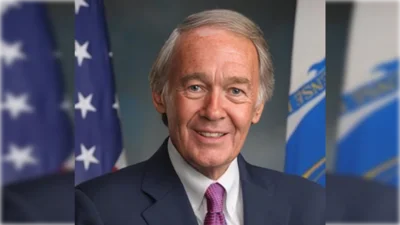The 2018 CJS Appropriations bill fails to fund priorities critical to communities, including the COPS hiring program, economic development investments, legal representation for low-income Americans, and climate research, while including divisive riders relating to firearms and U.S. policy toward Cuba.
Highlights of 2018 Commerce-Justice-Science Appropriations Act
Discretionary Budget Authority:
2017 enacted: $56.6 billion
2018 President’s request: $49.1 billion
2018 mark: $53.9 billion
The Chairman’s mark provides:
* $2.24 billion overall for total State and Local Law Enforcement Activities, which is $167 million less than the comparable FY2017 enacted level and $174 million above the comparable President’s request.
** $234 million overall for the COPS office. However, the mark shifts more than $188 million in grants, previously funded elsewhere in the bill, to the COPS program, making the appearance of a high COPS number an illusion. The core COPS Hiring Program receives no funding in the mark.
* $4.97 billion for the National Oceanic and Atmospheric Administration (NOAA), which is $709.8 million less than the FY2017 enacted level and $195 million above the President’s request. Cuts are concentrated in programs critical to coastal districts like Coastal Zone Management Grants and climate research, which is cut 19% below the FY2017 level.
** $973 million is provided for operating expenses of the National Weather Service, $6.8 million less than the FY2017 level and $36.9 million above the request.
* $1.5 billion for the Census Bureau, which is $37 million more than the FY2017 enacted level and $10 million above the President’s request.
* $300 million for the Legal Services Corporation, which is $85 million less than the FY2017 level and $267 million above the request.
* Office of Justice Programs
** $500 million for the Byrne-JAG program, which is, excluding carve outs, $109 million above the FY2017 enacted level and $184.1 million more than the President’s request.
** $527 million for Violence Against Women Prevention and Prosecution. However, the mark moves Victims of Trafficking grants into VAWA, making the appearance of a significant increase an illusion. Accounting for the change, VAWA funding is $500,000 million more than the FY2017 level and $2 million less than the President’s request.
* $8.8 billion for the Federal Bureau of Investigation (FBI), Salaries and Expenses, which is $47.5 million more than the FY2017 level and $92.2 million more than the President’s request.
* $2.16 billion for the Drug Enforcement Administration (DEA), which is $61 million more than the FY2017 level and equal to the President’s request.
* $1.29 billion for the Bureau of Alcohol, Tobacco, Firearms, and Explosives (ATF), which is $35.2 million more than the FY2017 level and $20 million above the President’s request.
* $7.07 billion for Federal Prison System operations, which is $61 million more than the FY2017 enacted level and $33 million less than the request.
* $7.34 billion for the National Science Foundation (NSF), which is $132.7 million less than the FY2017 level and $686 million more than the President’s request.
* $19.87 billion for National Aeronautics and Space Administration (NASA), which is $218.5 million more than the FY2017 enacted level and $779.6 million more than the President’s request.
Policy Riders
* The bill seeks to expand firearms riders by making permanent the following policy riders:
** Preventing the federal government from prohibiting imports of curios and relics;
** Preventing the federal government from issuing regulations relating to the export of certain firearms parts and accessories to Canada;
** Preventing the federal government from issuing regulations characterizing certain shotguns as “non-sporting" due to military-style features; and
** Prohibiting federal agents from facilitating the transfer of an operable firearm to any individual associated with a drug cartel (“Fast and Furious" provision).
* The bill includes a provision preventing the Department of Justice from requiring Federal firearms licensees to report on the sale of multiple long guns to the same person.
* The bill would continue the following policy riders related to firearms on a one-year basis:
** Prohibiting transferring functions of ATF to other agencies;
** Prohibiting funding to implement the Arms Trade Treaty, absent ratification by the Senate; and
* The bill meddles in foreign policy by prohibiting funding related to trademarks connected to a business or assets that were confiscated in Cuba.
* The bill contains a rider prohibiting the Department of Justice from concluding a settlement that includes a payment to a third party - potentially impacting a number of cases including those involving mortgage fraud and environmental pollution.
Source: U.S. Department of HCA









